Have you ever been concerned whether your pet would mind you bringing another one into the household – How would your corgi react? Would they get along or be at each other’s throats all the time? If you already have more than one pet in your life right now, then you must have wondered about this.
From experience, we know that corgis are tough around other pets, primarily because they value their privacy and want the spotlight to be on them most of the time.
Today, the spotlight is on guinea pigs. They are not your average pet, but they are great companions. Does this apply to everyone – are corgis good with guinea pigs?
In this article, we will teach you everything you need to know about your corgi’s friendliness, how and why he acts around other pets, and are guinea pigs a threat or a great addition to your family.
Stick around for more information on this unusual but exciting pet couple!
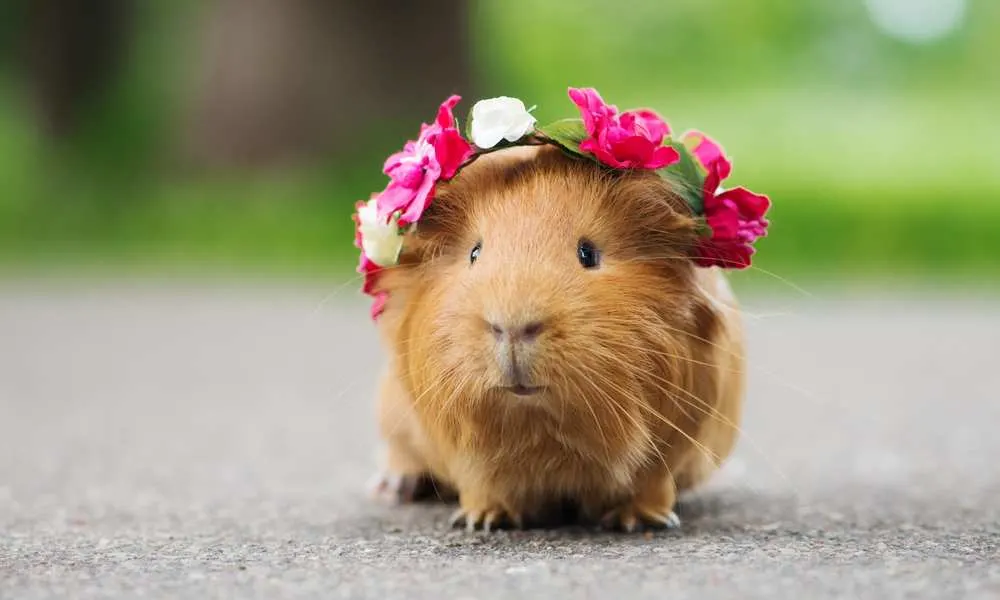
Do Corgis And Guinea Pigs Get Along?
You are almost 100% sure that you want to buy a guinea pig, but you still need to figure out whether it will get along with your corgi. Bringing a new pet into your household is a big step, and you need to take a few factors into account: friendliness, compatibility, and maintenance.
In general, corgis can learn to get along with other corgis. But don’t take this lightly. Because of their specific nature, things can get pretty rough and rather loud. Can you imagine two corgis starting to bark at each other all of a sudden?
With corgis and other pets, the matter is a bit more complicated. You should know that your corgi will not welcome with “open paws” every pet that comes through that door.
If you are bringing a guinea pig into your family home, you will need to prepare your corgi for this meet-up. From the cases we know, corgi dogs can develop a good relationship with guinea pigs, but there is much more to this.
Do Corgis Eat Guinea Pigs?
Before we list them down, people often bring up a question like, “do corgis eat guinea pigs?”. Although corgis are heavy eaters, they will not consider a guinea pig a prey. Still, guinea pigs are miniature-size animals, and dogs like corgis have hunting genes. You should be careful.
You should know that every household is unique, so you should open an extra set of eyes when you bring the guinea pig through the door.
Be on the lookout for any of the following behavioral signs:
If you noticed that your corgi has been practicing this type of behavior since you brought back home your new guinea pig, something is definitely wrong.
These small-sized pets can fit perfectly into your family, but only if you take on a serious responsibility. Here are some pre-buying tips about guinea pigs:
- Your guinea pig should have its own place in the house
- Do not leave your guinea pig alone with any pet
- Assess your pet’s attitude before bringing home a guinea pig
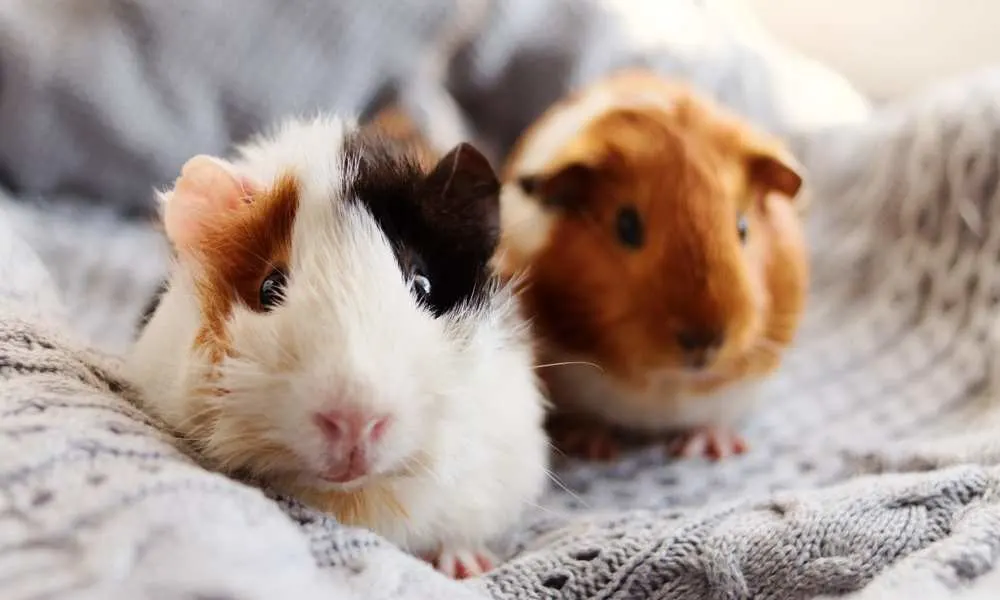
A Proper Introduction
Like we mentioned before, the way you introduce a new pet, whatever it may be, plays a significant role in the future relationship. With some breeds, like corgis, you need to carry out a proper introduction. And we are not talking about another dog. We are talking about a guinea pig, and you need your corgi to show acceptance.
Down below are five things you should consider when meeting a corgi and a guinea pig:
| Evaluation Of The Breed | – Before bringing any type of pet into your household, you should do the evaluation of both the one you already have and the one you are bringing in. In this case – a corgi and a guinea pig. It is not a good idea to get a pet guinea pig if you already had some aggression issues with your corgi. – Although they are small dogs, guinea pigs are even more miniature, and you don’t want that kind of trouble. This is called a “high prey drive”, and it can result in your corgi hurting the guinea pig. |
| Separation Of The Two Pets | – No matter what pet you decide to bring into your household, you should keep the two separated from each other – at least for the first couple of months. According to professionals, pets will have fewer conflicts if they have their private space. – When it comes to corgis and guinea pigs, it is preferred that they should be kept in separate rooms and on different ground levels. This prevents the corgi from getting too close to the guinea pig and harming it. |
| The Importance Of Scent | – You have probably noticed that your dog has a habit of sniffing the dog he comes in close contact with. And there is a good reason for this – a sense of familiarity. – If your corgi shows interest in your guinea pig, it will surely want to come closer and sniff the blanket, cage, or even the guinea pig alone. Becoming familiar with each other’s scent is a huge step in the future relationship because that is how they become comfortable around each other. |
| Necessary Barriers | – Before meeting face to face, you need to create a barrier through which the pets can see each other. This will help them control their outbursts of energy the first time they see each other, and it will save you from any possible dangers. – Barriers between corgis and guinea pigs don’t have to be that big or serious. They just serve as a precaution tool that helps the two acknowledge each other without conflicts. |
| Face-to-face Contact | – The last part of the introduction has to do with the actual face-to-face contact, which is the most important part. Before letting your pets actually come close to each other, you have to go through their behavior and make sure that there will be no harm done. – If you have a well-behaved and trained corgi, introducing him to a new guinea pig shouldn’t pose a problem. There might be some excitement involved, but nothing too serious. Also, you might expect some threat from the guinea pig because to the guinea pig; your corgi will look like a giant. |
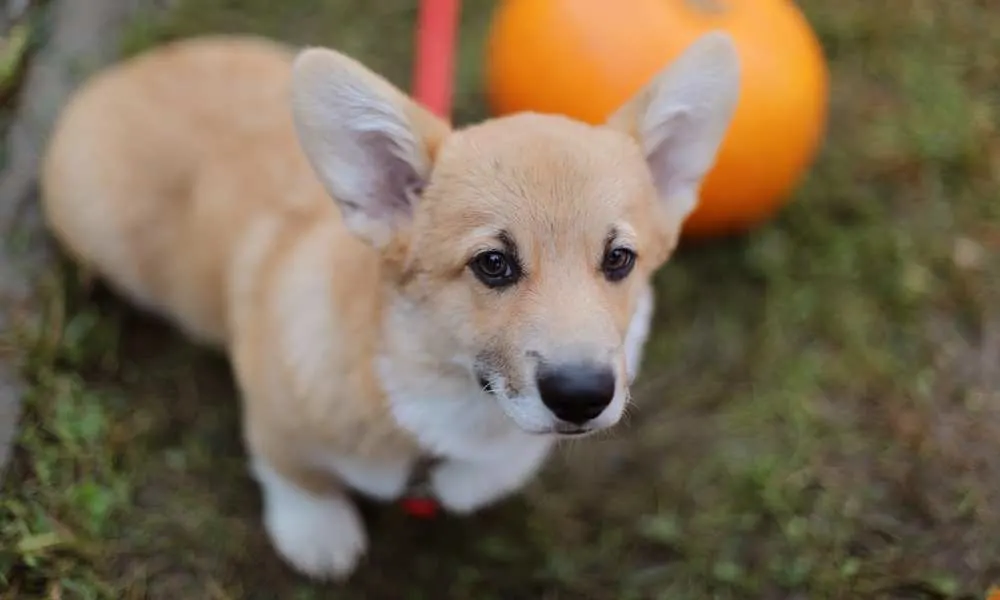
Behavior Refinement
If you want to avoid problems regarding your corgi’s behavior when another pet comes, you should learn about some behavior modification tips. They will help your dog control his aggression and hyperactivity issues.
Here are some main points:
Habituation
Habituation refers to the state and situation your dog is used to. For example, a corgi who has adjusted to a calmer environment will be more welcoming of another pet than a corgi who has been exposed to an unhealthy home setting. You should provide your corgi with a safe and healthy living environment in which he doesn’t have to feel fear or jealousy.
Reinforcement
Reinforcement has to do with behavior patterns that have a habit of repeating, and they can be connected to almost anything – food, toys, other animals. If you notice some frightful or incompetent behavior patterns, turn to another way of training methods.
Desensitization
Desensitization is crucial when bringing another pet into your home because this is all about your dog accepting and getting used to a new situation. You should take small steps for this to work and not rush your dog into liking the new pet right away.
Punishment
No bad deed should go unpunished. When your dog does terrible things like start to act aggressively, disobey you, etc., you need to teach him that bad behavior will not be tolerated. However, punishments should not be carried out physically. Find another way to let your breed know that he has done something wrong – ignoring, no treats, etc.

My New Pet Guinea Pig
Before bringing a guinea pig into your home and introducing it to other pets, you should know a couple of facts and care tips. Here are some useful pieces of information about a guinea pig.
These fluffy little animals come in all colors, and they are considered to be very lively animals. A guinea pig is undoubtedly a great addition to families with kids. Although this pet might be miniature, it has a lot to offer.
There are several breeds of guinea pigs:
- Texels
- Coronets
- Baldwins
They share their cuteness, and the most common distinctive feature is their hair.
They might be small, but they need to be on a high-quality diet. Meals for guinea pigs must include:
- Limited amounts of freshly-picked vegetables and fruit
- Vitamin C (a daily supply of 30-50 mg)
- Chlorine-free water
- High-quality guinea pig food (store-bought) – “Timothy hay”.
- No caffeine, sugar, or dough in their meals
As far as their private space goes, you should provide:
- A comfortable cage
- An environment with room temperature up to 80 degrees
- Hay, crumbled-paper or hardwood shavings in the crate
- A running device inside the cage (for entertainment purposes)
Always check on their cage once a week and clean it out.
Guinea pigs are generally clean and neat animals, so you shouldn’t worry much about the washing. You can do it twice a month in a small tub or using wipes.
When it comes to your guinea pig’s health, these animals are very active, and they are not prone to health conditions like corgis, but still, you can never be too careful. If you notice:
- Weight or hair loss
- Disrupted breathing
- Skin injuries
- Overgrown teeth
It is time to visit the vet. Symptoms like this are often the signs of diarrhea, malocclusion, lice, ringworms, or scurvy.
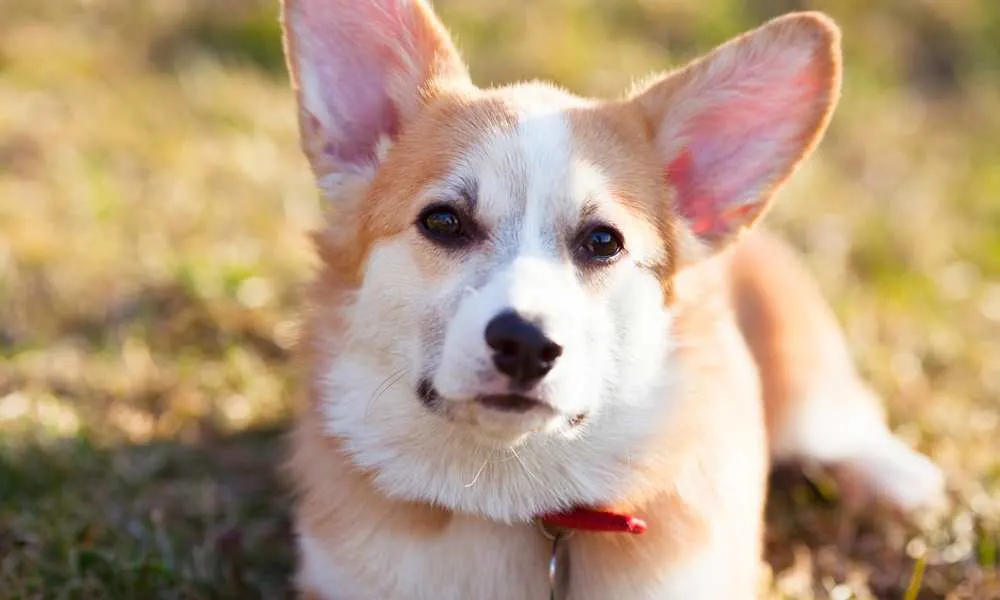
Corgi Personality Overview
For the two pets to get along fine, you need to be familiar with their personality and temperament. You need to know when and over what they get angry, how they generally respond to other animals around, etc.
We are going to break down everything we know about corgi temperament and personality traits.
Strong Instincts
Corgi dogs might be small, but they sure carry around an exciting personality, and it has a lot to do with their history. See, the corgi has been considered a herding dog back in the day, and these dogs had a lot of responsibility. They had a lot to do with transport and taking care of the cattle. So, their hunting and herding instincts play a huge role today.
Training
A well-behaved and trained corgi dog will show much affection to its owner. Corgi dogs are very attentive and loyal, but only if they are taught so from an early age. This means that if you don’t want a reckless corgi dog around you, you need to train them when they are still puppies.
On the other hand, if the owner shows ignorance towards their corgi, matters will only worsen. Your corgi will take on too much boldness and start acting aggressively. This might even encourage him to hurt their owner or other pets.
High-energy Level
Corgi dogs have a high-energy level, and you need to prepare yourself for this. Taking your corgi out for daily walks is a must. According to professionals, they need at least an hour or two of any kind of daily exercise in order to stay healthy and in shape.
“Canine Separation Anxiety”
One thing you must never do is leave your corgi home alone. These dogs simply shouldn’t be alone for a long time because they can develop separation anxiety. This is a severe behavioral issue, and it can provoke your corgi to act destructively.
The Loud Bark
The one thing that goes with their personality is the loud bark. Although many people have tried to tame it, it never seemed to work ultimately, so you should get used to it. This is something that also dates back to their herding days. However, barking doesn’t necessarily mean that something is wrong or that he is angry. It’s just their way of expressing themselves. Learn More: How To Train A Corgi To Stop Barking?
Anger Management
It shouldn’t be unusual for these dogs to develop signs of aggression. After all, they have a short fuse if something doesn’t go their way. Aggression can result from territory, food, or social issues. But don’t worry. This can all be managed by behavior modification.
Friendliness
Corgis will be most friendly with other corgis. When it comes to other animals, it may be hard to gain their acceptance. They very much value their privacy and like to be the center of attention, so bringing another animal into your home can be a challenge. Surely they will get used to your new pet, but it will take some time.
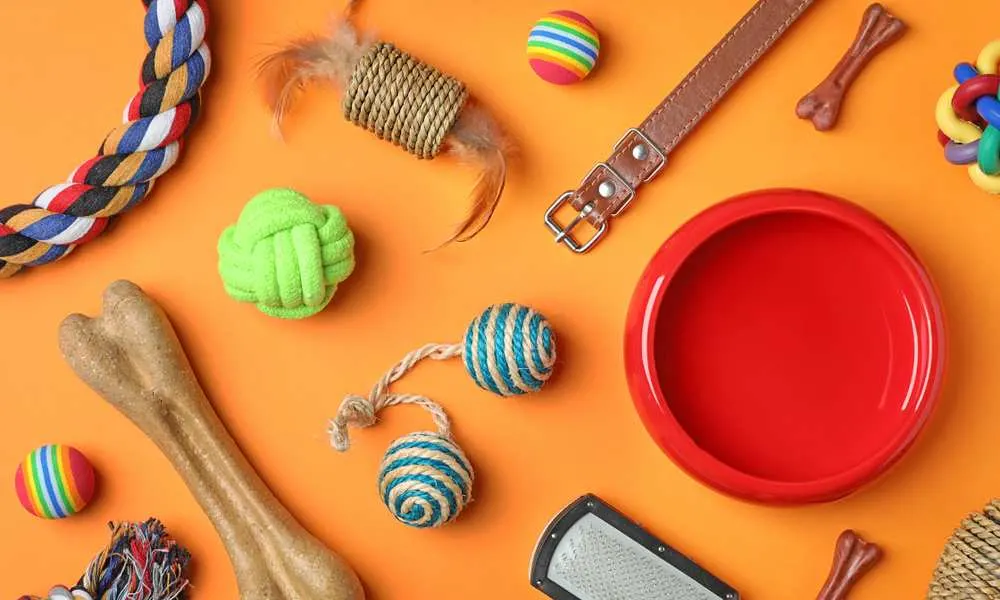
Corgi Vs Guinea Pig – Essentials
You can’t just bring home a pet without anything. You have to prepare your home for the new pet (food, water, toys, bedding). Two pets mean more work, but don’t worry – we’ve got you covered.
Here is a home checklist for your corgi and guinea pig:
| Corgi Essentials | Guinea Pig Essentials |
|---|---|
| Dog food, bully sticks or chews | A small cage |
| Dog bed | Guinea food (store-bought) |
| Food and water bowl | Hay or hardwood shavings for the cage |
| Organic shampoo | Toys |
| Ear cleaner and wax | Vitamin C |
| Brushes for grooming | Chlorine-free water supplies |
| Smart dog toys | Tools for brushing |
| Poop bags | Chew tubes |
| Towels | Bedding |
| Collars, leashes, etc. | Food bowl |
Besides these essentials, you can always look for a guinea pig or corgi guide. This can prove to be very helpful for new owners.
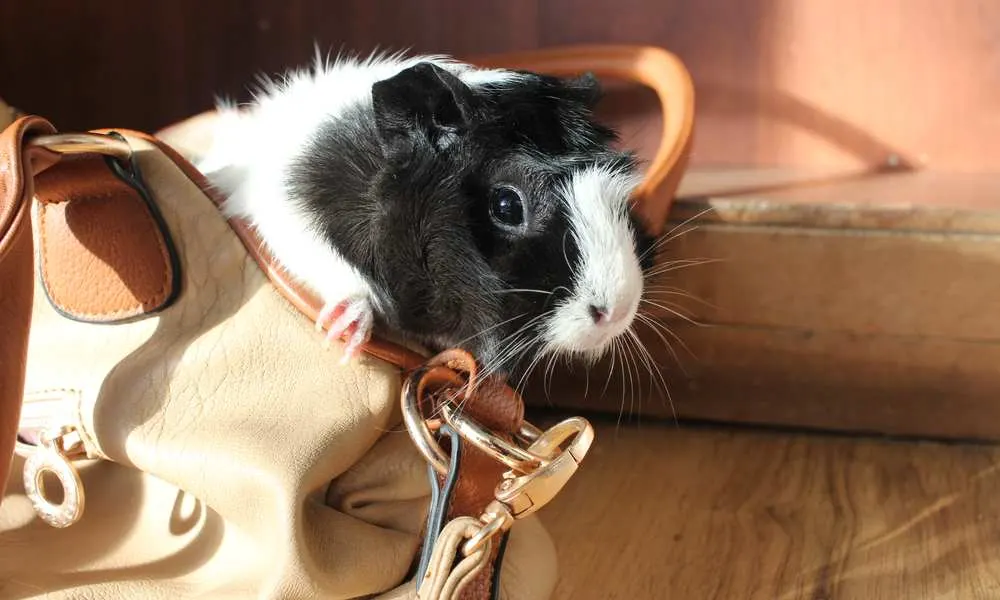
Conclusion
We have seen all kinds of pet couples, but have you seen a corgi and a guinea pig playing together? If you are interested in bringing home a pet guinea pig to your already adult corgi, there are a couple of things you should know first.
Guinea pigs and corgi dogs are certainly not the first pet couple that comes to your mind, but you can make this relationship work – you just need to go over a few tips first. The five most important factors in bringing any new animal to your home are an evaluation of the breed, separation, barriers, scent, and face-to-face contact. If you want your guinea pig and corgi to accept each other, you need to take baby steps.
Corgis are not the calmest of dogs, and you need to evaluate their behavior before deciding to go out and buy a guinea pig. Maybe your corgi needs some behavior modification. This is tightly connected to your training, and it refers to habituation, punishment, etc.
Of course, your corgi is not the only one in this story – you should know a couple of things about your pet guinea pig as well. For example, you should know that these are incredibly sociable animals and that they need a well-prepared diet.
When it comes to corgi temperament, these dogs may be small, but they have a large personality. If you are introducing a new pet, you should be aware of your corgi’s essential traits like anger management, loud bark, separation anxiety. All of this can affect the relationship.
Before bringing them home, make sure you have some essentials like bedding, food and water supplies, some toys, etc.

